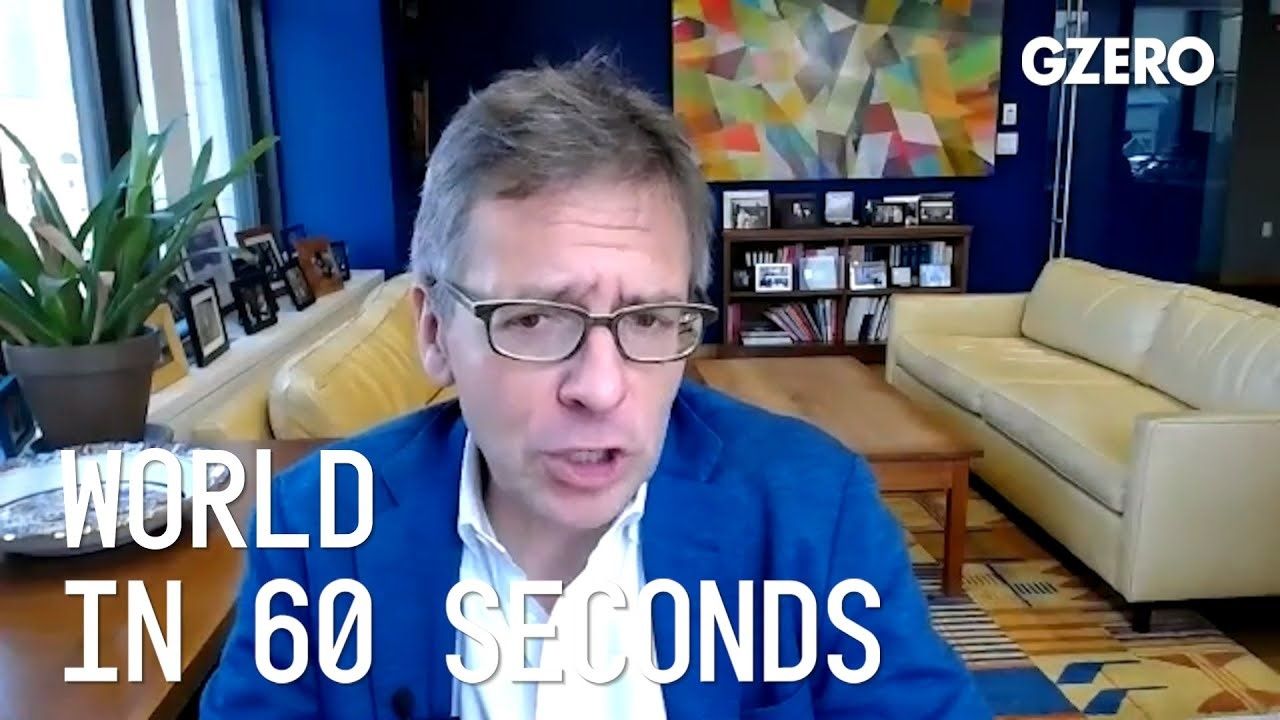
Ian Bremmer provides his perspective in (slightly) more than 60 seconds: In fighting this pandemic, do you anticipate more drastic lockdown measures in the US soon?
No, I think the answer to that at this point is no. Even though we expect the next week, two weeks, are going to be the most challenging in terms of the numbers of new cases and deaths in different cities across the country. No, the bigger question is when we start to see a relaxation of that lockdown, which will certainly start happening in the coming, say, four-six weeks, but in different states, in different cities, with different politics behind them, what's the likelihood we have to engage in new shut down? Which is incredibly difficult to do and will make those political leaders look like they acted intemperately. You already see that in places where they've acted very well.
In Singapore, they just had to do a new one-month shutdown. In Japan, they just had to announce a new state of emergency. Clearly, even with the best governance, you're likely to have additional shutdowns in the US. In other words, you don't go from red to green light. You go from red to flashing yellow. And you've got to be really careful before you start moving again. And it's going to frustrate people like hell that we're going to have additional shutdowns in the US. And those political decisions are going to be very, very difficult.
With Boris Johnson hospitalized, where does that leave the United Kingdom?
Well, as of right now, he's not on a ventilator. And that means that Dominic Raab, who is the first secretary and is effectively acting prime minister, but he is still consulting with the PM on key decisions. If Boris Johnson needs a ventilator, he's then sedated, Raab has got to be in charge. He has nowhere near the empathy or the support of the party or of the people that Boris Johnson does. Also, the decisions being taken by the UK in the coming weeks as to how to, when to start relaxing the lockdown, every bit as hard for the UK as here in the United States. A hell of a lot harder with a leader that doesn't really have the authority of his own cabinet, with a cabinet that isn't enormously aligned on these issues and will feel like they should express that lack of alignment very publicly, if Boris isn't there. So, let's hope, let's certainly hope he gets better. Let's also hope he doesn't have to go on a ventilator. But we'll see. Of course, if he does go on a ventilator, given his age, the likelihood he makes it out is close to a coin flip. And that, that shows you the seriousness of this disease.
Is Brazil's handling of coronavirus about to get better now that Bolsonaro was talked down from firing his Health Minister?
Well, thank God he was talked down from firing his health minister. My God, the guy is incredibly competent, the health minister. He has like 75% approval ratings. He was the one thing that you look at Brazil and say, okay, well, at least they've got a competent guy in the cabinet who folks are listening to. And Bolsonaro was like, oh, he's too popular, I'm going to fire him. Well, he was talked off that ledge by a lot of people in his own administration who said, if you do that, there's going to be a move to impeach you. But Bolsonaro is intemperate, he's emotional, he doesn't like listening to folks. A little bit like some other leaders we can think about. And I don't think he's out of the woods at all because Bolsonaro is still the one who's telling his citizens, everything's fine, you don't need to go on lockdown. And as a consequence, when you look at the geo location data, you see that since Bolsonaro has been on this rant, people have been moving around a lot more. And that means a lot more people are getting the virus. The economic impact, the human impact in Brazil, going to be a lot greater.